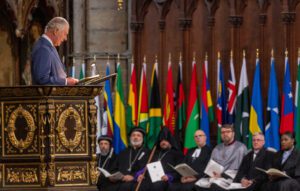My colleague, Mithika and I are looking forward to our upcoming trip to Johannesburg to work with the full core membership and Secretariat of the Southern African Alliance on Youth Employment (SAAYE). As part of the capacity development support to SAAYE, the Foundation has brokered a learning exchange between Citizens UK and the Alliance, trialling a new model of support.
SAAYE is a recently formed alliance of church-based youth organisations, student groups and activists, trade union representatives and youth development trusts from nine Southern African countries. The Foundation has supported the Economic Justice Network (EJN) in establishing SAAYE; EJN now act as SAAYE’s secretariat. Over the past 18 months, SAAYE has been bringing the group closer together, clarifying their strategic mission, and building partnerships and allies. The Foundation has provided support to the Alliance and its members as they have continued to develop their mission at the regional and national levels. Foundation support is also helping the Alliance to enable working relationships between members.
The learning exchange will take SAAYE’s work from strategic planning to the next step: to formulate their actions for change, over a two-year period. We have linked them up with Citizens UK because of their expertise in organising and building the power of civil society to advocate and act. The sessions will be led by Lead Organiser, Emmanuel Gotora and Yasmin Aktar from the East London Community Organisation (TELCO). In addition to Citizen’s skills in developing the capacity of civil society leaders to constructively engage with people in power, the Learning Exchange will draw on Citizen’s work around employment and work such as the Living Wage campaign and the Good Jobs campaign which directly address youth unemployment using a multi-stakeholder group of leaders from London’s community groups, industry employers and training institutions. These experiences will provide some relevant lessons and ideas.
It is our hope that at the end of the four-day exchange, SAAYE national teams and the Secretariat will have analysed where, with whom and how, in each of their theories of change, they should target specific actions to have the greatest potential impact. Key questions like: Where can SAAYE have most relational power in making change on youth employment in each country? Who has power inside and outside the formal structures regarding youth employment policy nationally and regionally? How do the people who can make decisions relate to each other and how can SAAYE influence them? The outputs from the learning exchange will be available on the Foundation’s website.
The learning exchange between SAYEE and Citizens UK takes place in Johannesburg from 24 to 31 March, 2017. Photo Credit: Alan Levine Flickr CC








